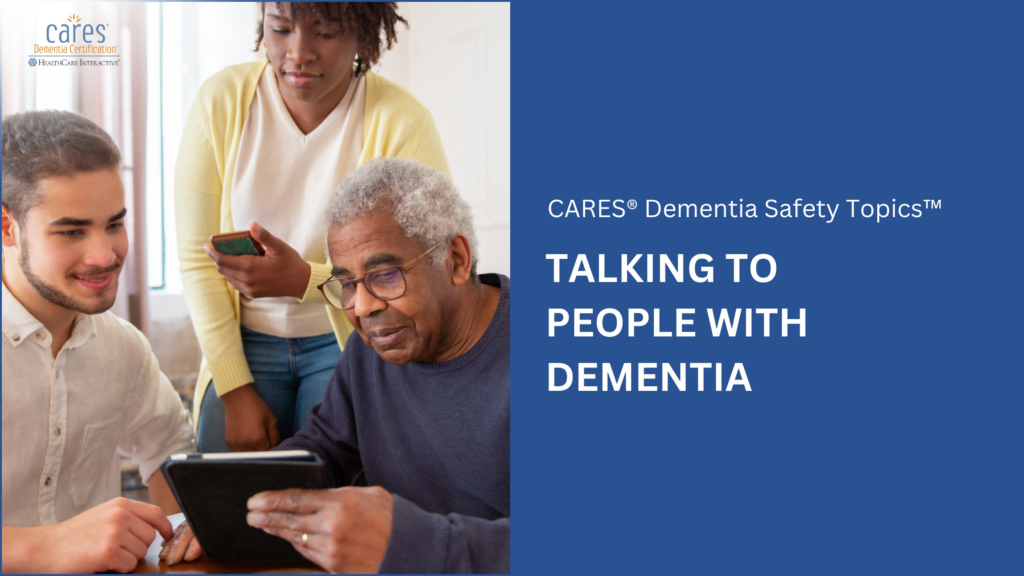Talking to someone with dementia can feel a little tricky at first, especially if you’re unsure what to say or how to keep the conversation going. But with the right dementia communication techniques, it becomes much easier to engage in meaningful conversations that make both of you feel connected.
The key is understanding that conversations with someone who has dementia are different. Memory loss can make certain questions challenging, and topics might need to be adjusted. But that doesn’t mean real, heartfelt conversations aren’t possible.
How to talk to someone with dementia
If you’re wondering how to talk to someone with dementia, here are a few easy and effective ways to make interactions smoother and more enjoyable:
1. Talk About Their Life Story
Knowing a little about their past can help you guide conversations. You could say, “Mrs. Nichols, your daughter mentioned you were married for 52 years. That’s incredible! What was your wedding like?”
2. Use Objects Around Them
A familiar object can spark conversation. “Alice, I see a beautiful wooden boat on your shelf. Did you make that?”
3. Discuss Everyday Things
Even small talk works well. “We’re having mashed potatoes today—my favorite! Do you like them too?”
4. Share a Bit About Yourself
Showing something personal, like a family picture, can help. “This is my daughter, Jessica. She went to a dance last night! Did you like dancing?”
5. Offer a Genuine Compliment
Everyone loves a nice compliment. “Your hair looks lovely today!”
The main goal is to make them feel heard and respected. Even if they repeat stories, let them share. It’s not about the details—it’s about making them feel valued.
Tips for Dementia Caregivers
For caregivers, communication is not just about talking—it’s about listening, adapting, and making each interaction positive. Some useful dementia communication techniques include:
• Keep sentences short and simple.
• Avoid correcting them if they forget something.
• Be patient and give them time to respond.
• Use a calm and friendly tone.
Even when words fail, non-verbal cues like smiling, gentle touches, and eye contact can help create a warm connection.
Why Effective Communication Matters
Using effective communication with Alzheimer’s patients can make daily interactions smoother and more fulfilling. When you focus on positive engagement, you help reduce frustration for both yourself and the person with dementia. Dementia communication techniques aren’t just about words—they’re about connection.
By following these simple steps, you can create meaningful moments with your loved one, even in the face of memory loss.
Even simple daily tasks can create a powerful sense of purpose in dementia care. Want to enhance your skills? Get $25 OFF any CARES® online training with code 2MYVB5 at checkout. Offer valid until June 30, 2025.

